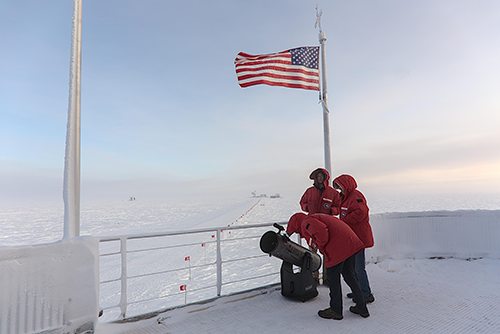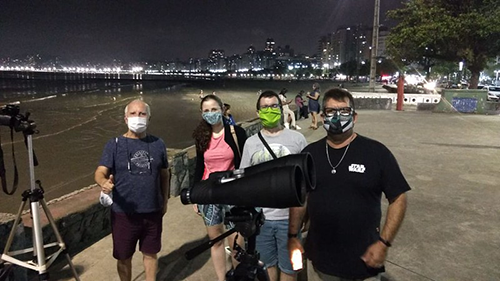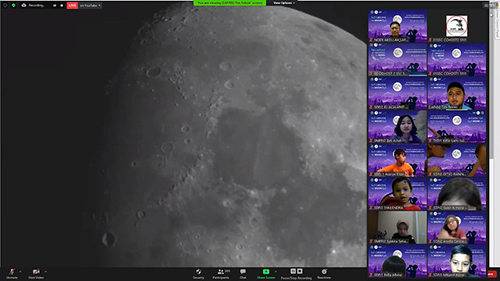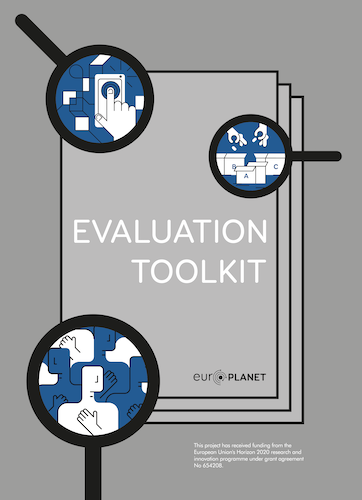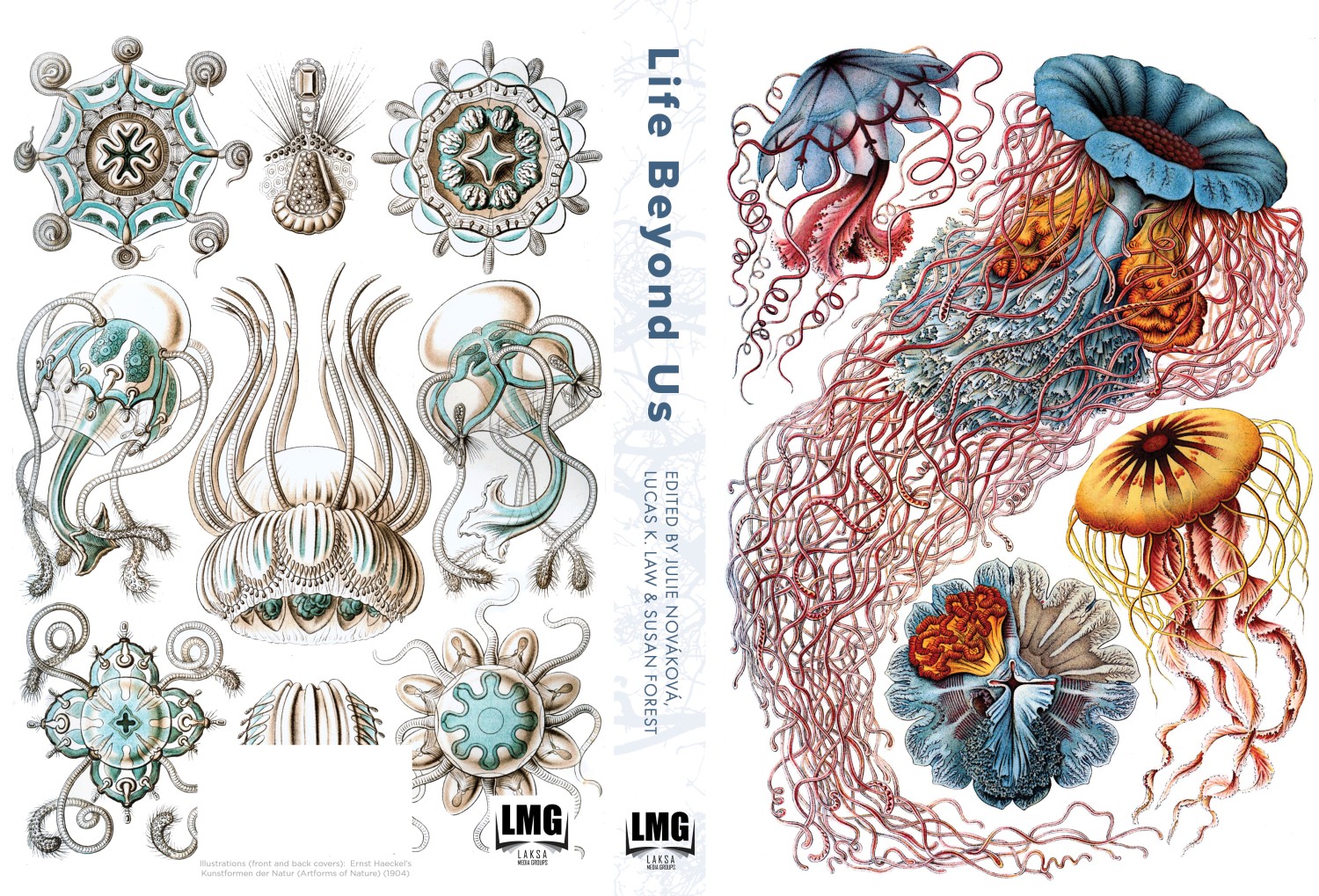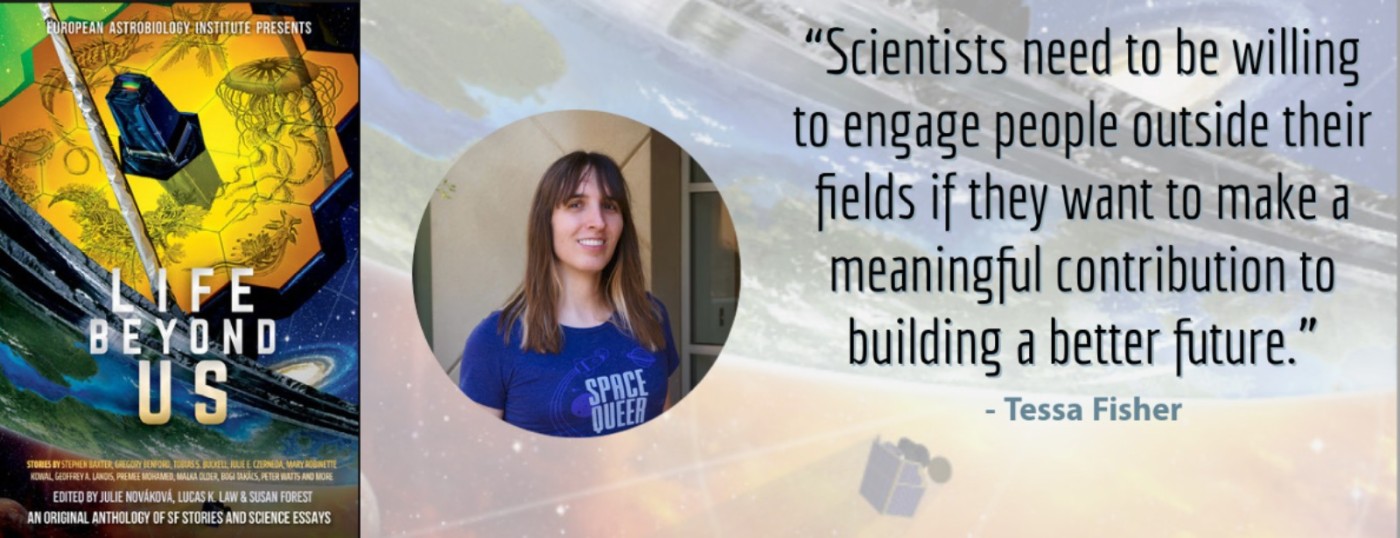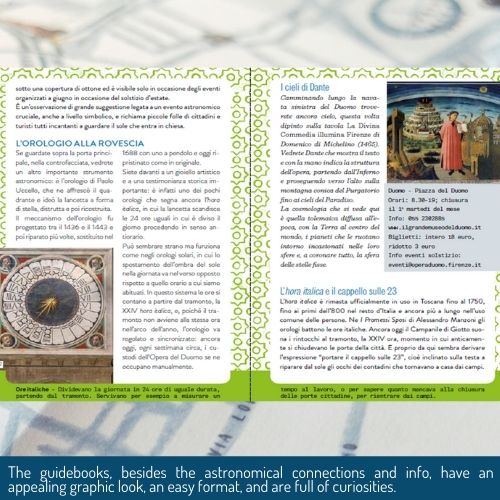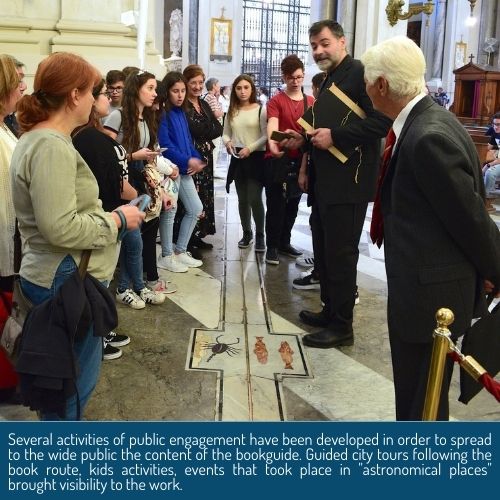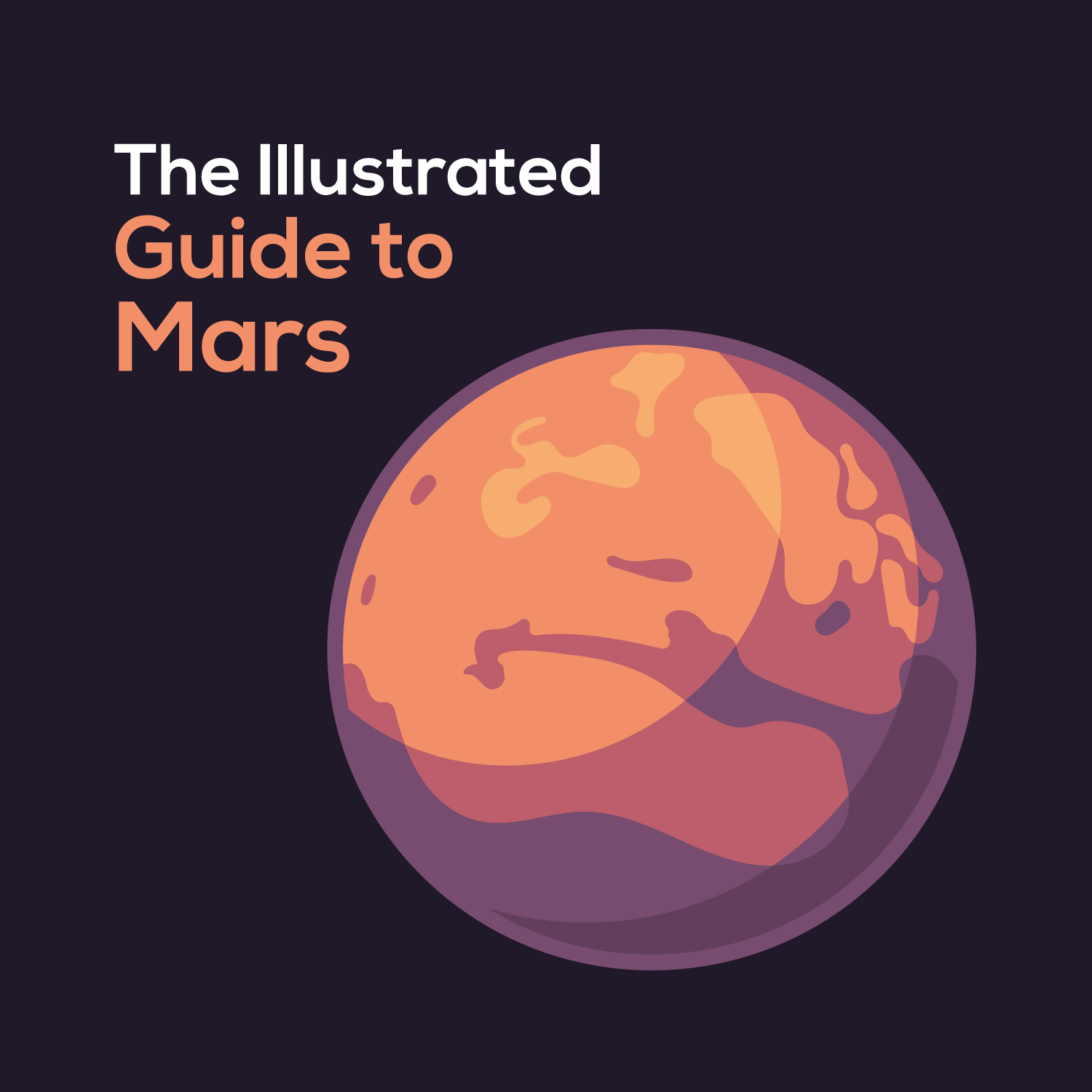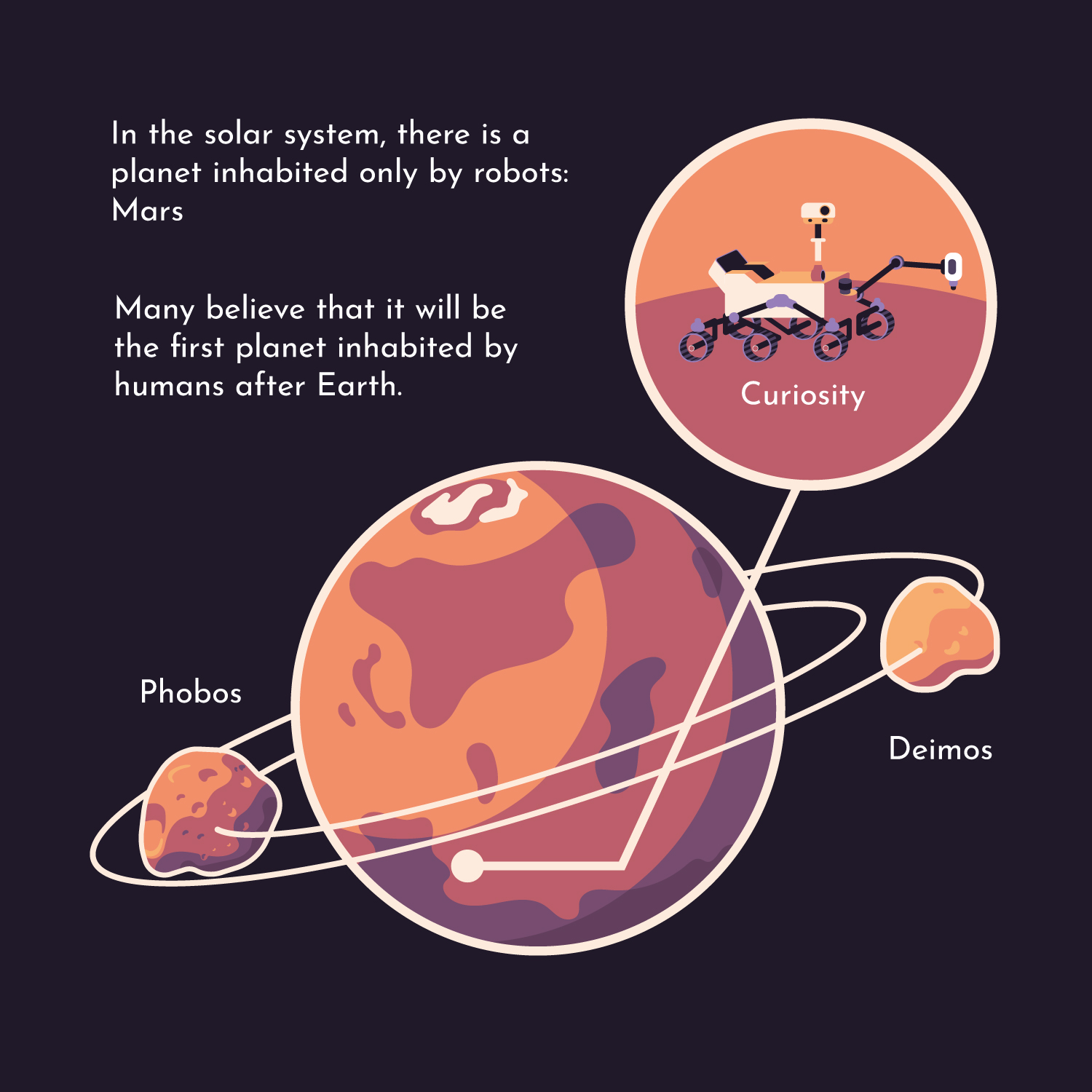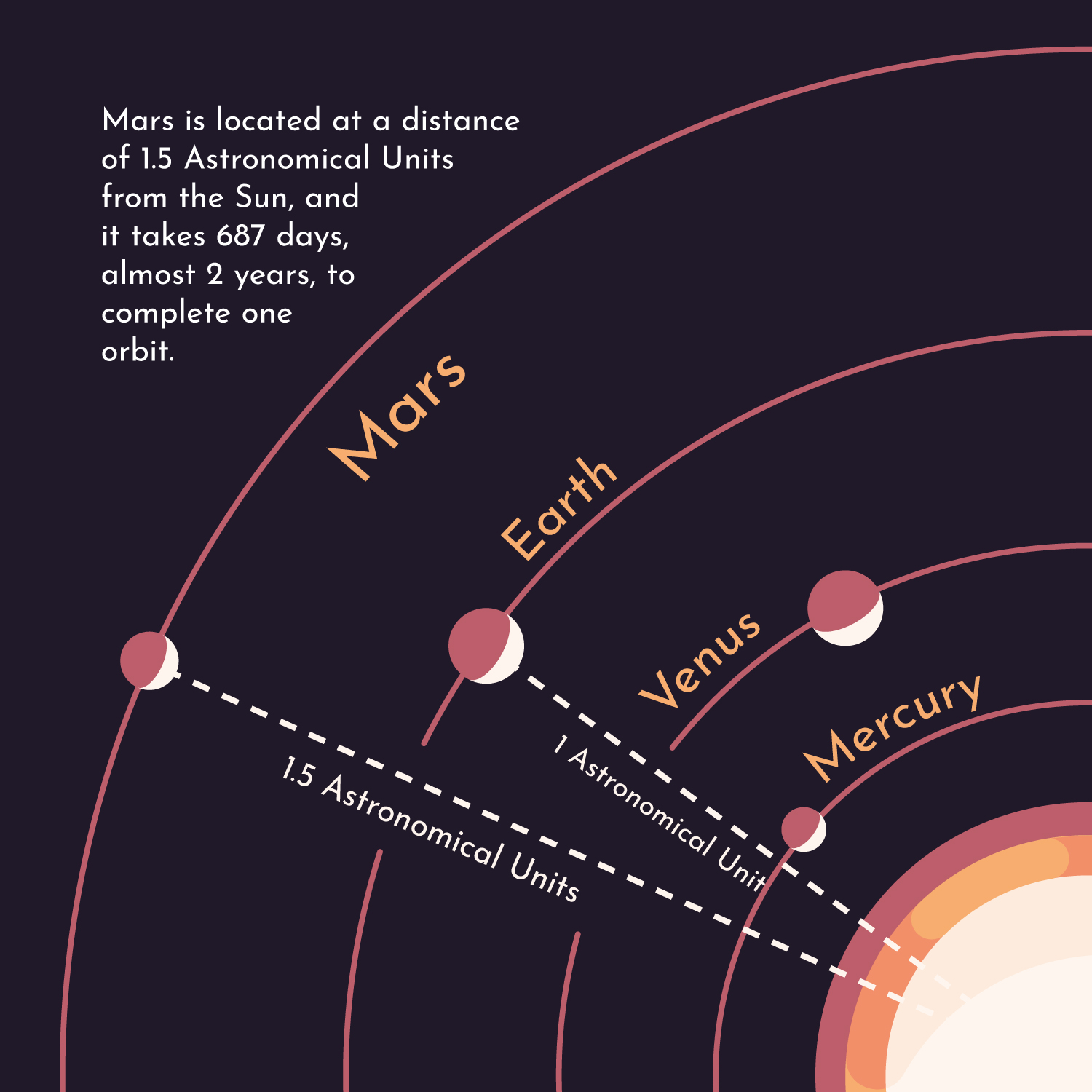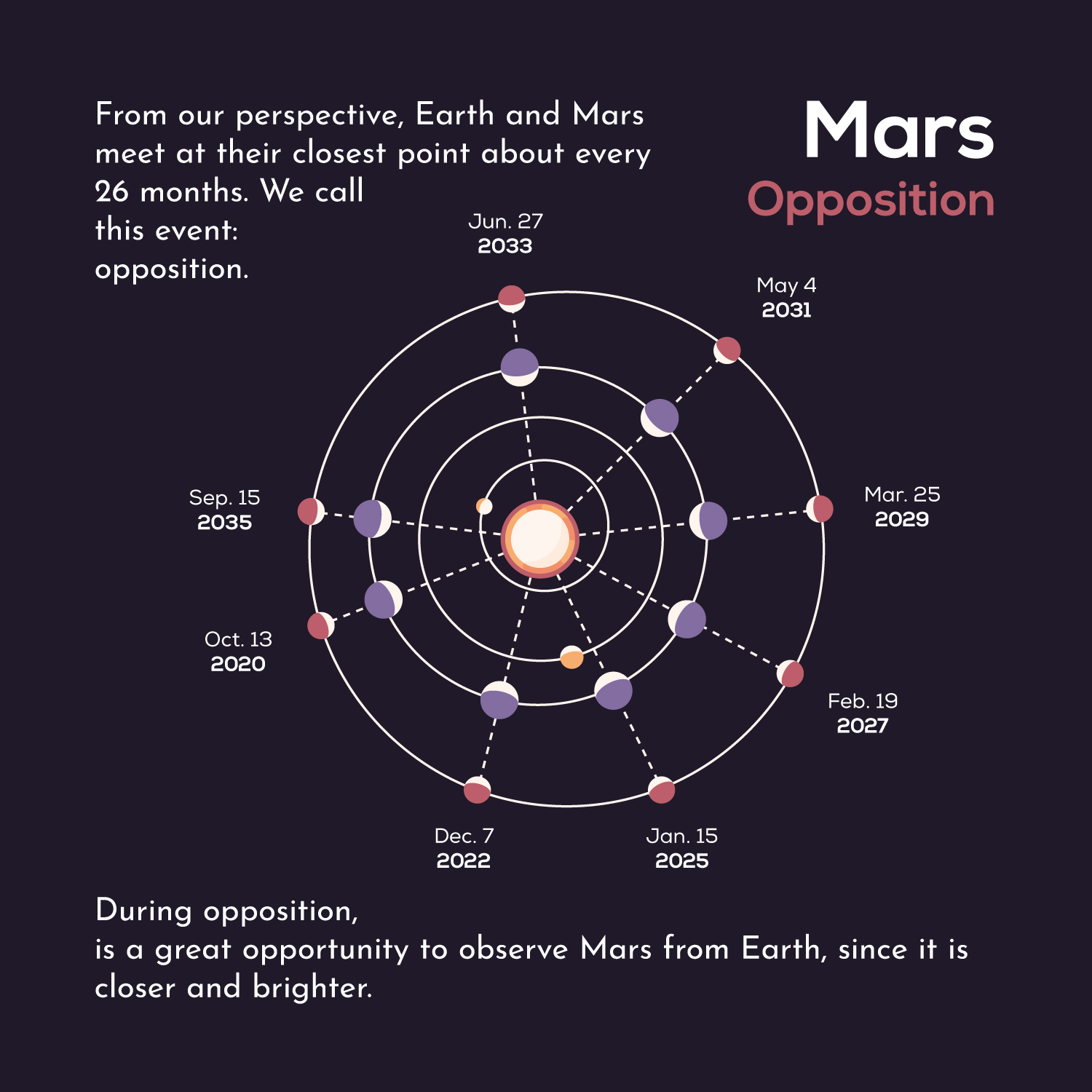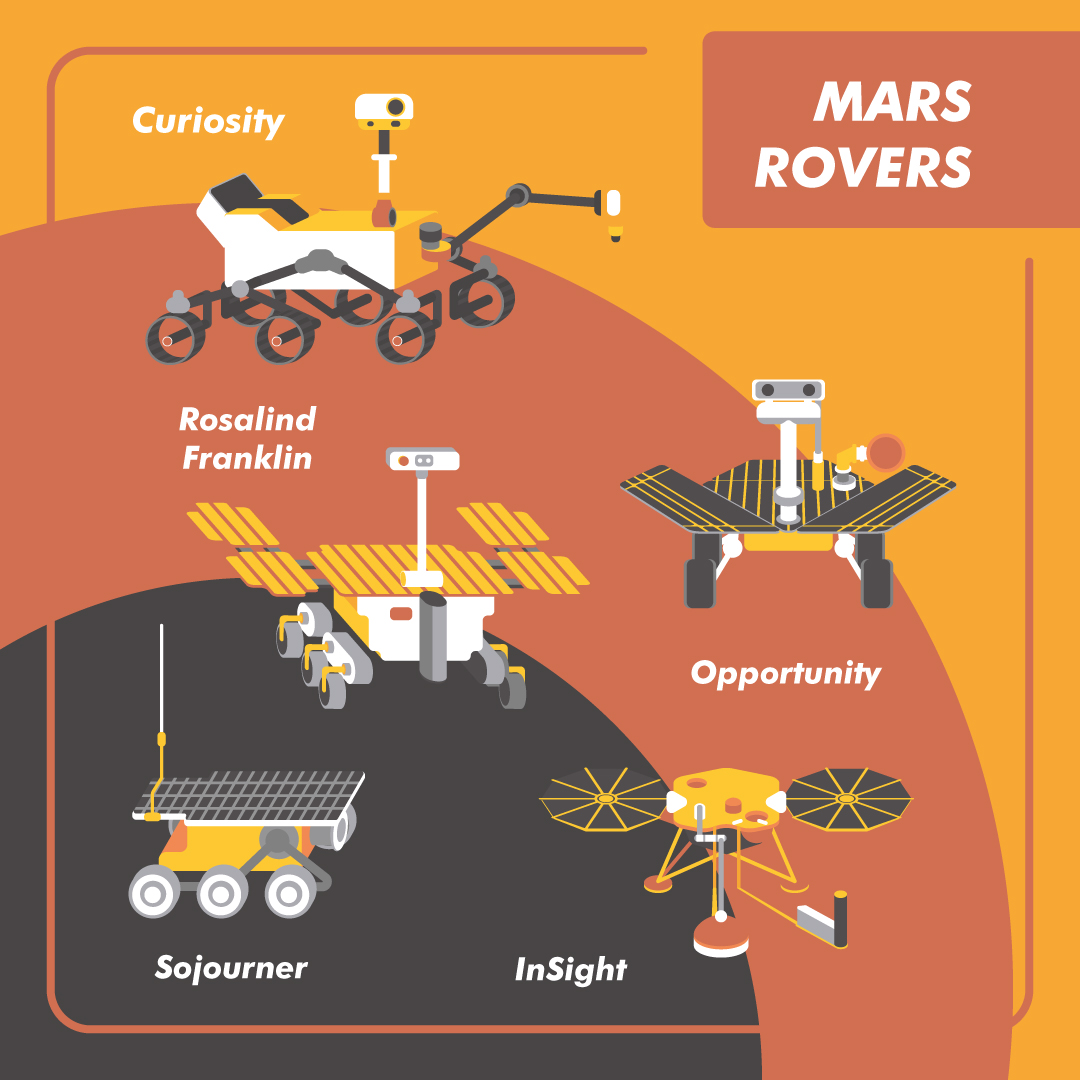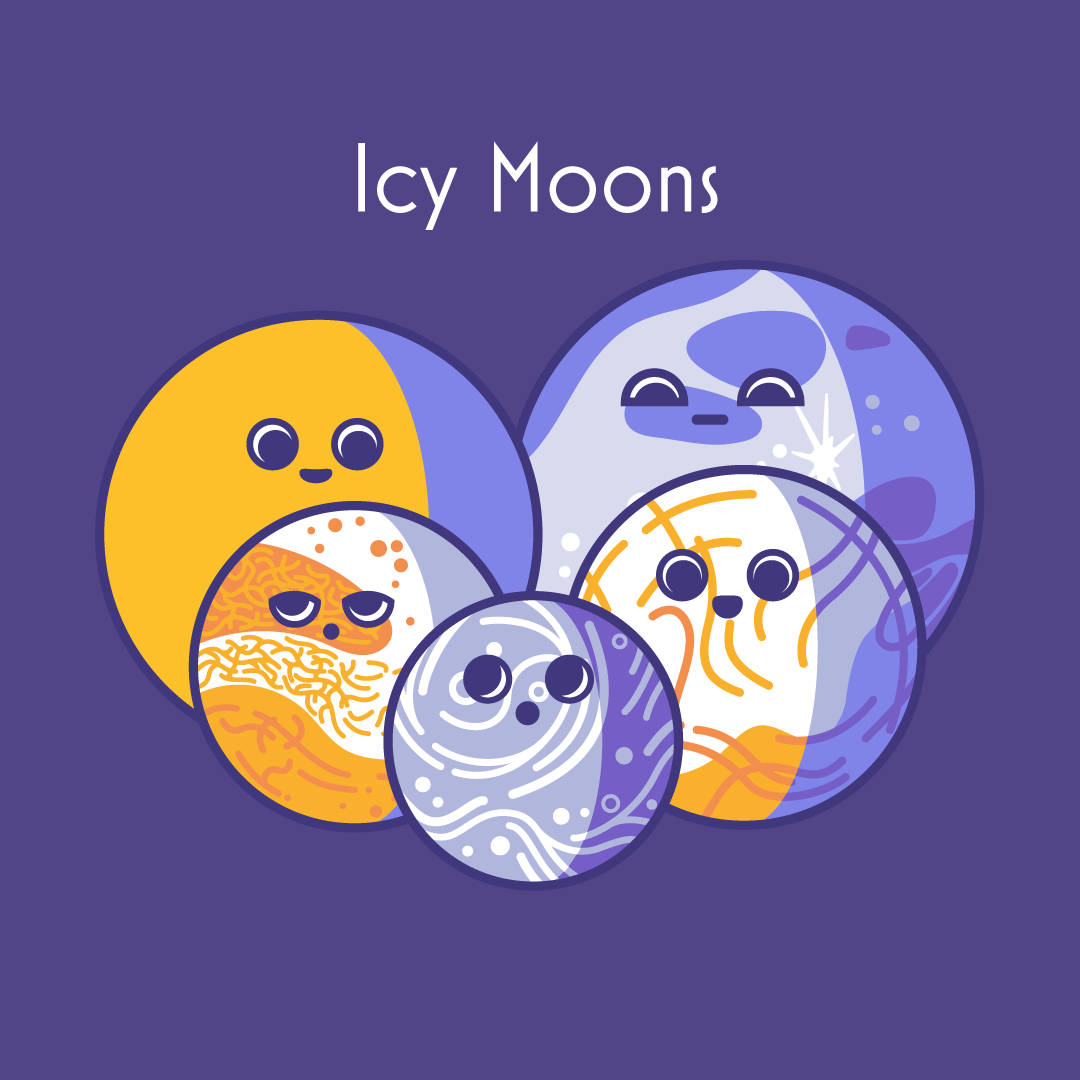Many robotic missions are currently exploring the Solar system. They are attractive opportunities to work some parts of the high school curricula. The various aspects of these robotic missions are traditionally studied in STEM classes (Science, Technology, Engineering and Mathematics). However, social, cultural as well as linguistic dimensions can be included in broader multidisciplinary projects, such as the one we present here.
The Hayabusa2 Japanese mission was launched in December 2014. It arrived at Ryugu asteroid in June 2018, a small carbonaceous asteroid composed of primitive matter dating back to the Solar system formation. The spacecraft (see figure 1) deployed two robots and the French-German MASCOT lander on the surface of Ryugu, and collected two regolith samples. These samples were brought back to Earth on December 5, 2020.

Figure 1 : Hayabusa2 spacecraft (© JAXA)
My colleague and I respectively teach Japanese and Physics at Saint-Paul high school in Vannes (France), which hosts ~1500 students. This asteroid sample return was a fantastic opportunity to set up a Japanese-Physics multidisciplinary project about the Hayabusa2 mission. Our first objective was to make students curious about space exploration and scientific research. We also wanted to provide students with a cultural openness to a topic usually addressed through the mathematical application of physical laws.
"Movement and interactions" topic in the French final year of high school curriculum of Physics is very appropriate to demonstrate how physical laws can be used to illustrate various technical aspects of the mission.
Students worked on three exercises:
- Propulsion of Hayabusa2 spacecraft: the spacecraft uses ions thrusters for propulsion. Xenon ions are accelerated by an electric field and ejected out the back of the engine at high speed. Students computed the work of the electric force between points A and B (see figure 2) in order to obtain the speed of an ion at point B. Using the conservation of momentum, they determined the spacecraft speed. Students eventually computed the maximal operating time of ion engines and compared it to the duration of the Hayabusa2 mission.

Figure 2: Diagram of an ion thruster
- Deployment of MASCOT lander: students determined the equations of motions of MASCOT using Newton's second law of motion, from the dropping of the lander to its surface touchdown. Then students computed the lander speed value at touchdown and compared it with a value given in a newspaper.

Figure 3: diagram of MASCOT lander deployment
- Orbit of Ryugu asteroid: the students first identified the ellipticity of Ryugu orbit. Then they applied Kepler's third law of planetary motion to compute Ryugu revolution period.

Figure 4: Orbits of Ryugu and telluric planets (© JAXA)
In groups of four or five, students were asked to exercise their writing skills, in Japanese, on the topic of Hayabusa2. This task aimed at practicing the structures of the Japanese language and confirming the grammatical knowledge acquired so far.
Two groups presented respectively the Japanese space agency (JAXA) and the OSIRIS-REx mission, the American counterpart of the Hayabusa2 mission.
Some students worked on the name given to the asteroid, Ryûgû (where accents mark long vowels). Many Japanese legends place this "Dragon Palace" at the bottom of the sea. The most famous one is the legend of Urashima Tarô. This character is invited to a life of pleasure for having saved a turtle, which turns out to be a princess. But Urashima wants to come back to his village. He is given a box named Tamatebako, with the instruction never to open it. Realizing that several centuries have passed on the surface while he has spent only a few days at Ryûgû, Urashima Tarô opens the box. A plume of smoke escapes and he is transformed into an old man (see figure 5).
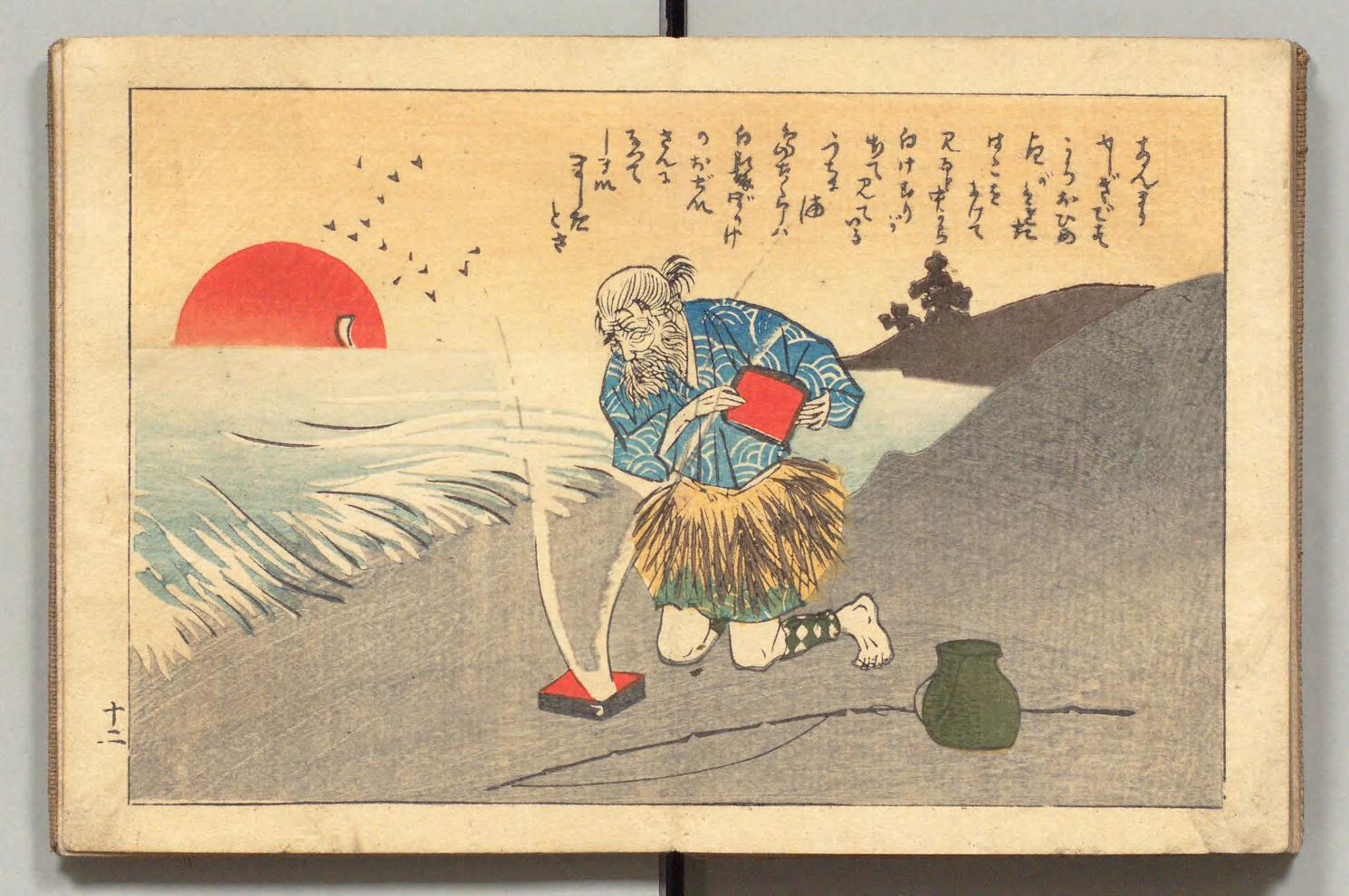
Figure 5: Urashima opens the Tamatebako (Matsuki Heikichi, 1899)
A group of students summarized this legend. They also searched for analogies with the Hayabusa2 mission. The mission investigates the origin of water on Earth, and Ryûgû is an underwater palace. The Tamatebako contains the very old age of Urashima, and the return capsule contains samples of matter formed 4.5 billions years ago.
Another group looked for famous tales of Japanese popular culture referring to Urashima Tarô legend, such as Dragon Ball or One Piece.
Four students described the relationship between the Japanese and science, noting that scientific methodology and its results are far less questioned in Japan than elsewhere.
The last group wrote an ambitious science-fiction novel inspired by the mission. The main difficulty was to translate their text in Japanese with the correct vocabulary and turns of phrases. The very topic of spatial exploration transported them beyond the basic register they had become familiar with from the 10th grade.
We also asked students to compare scientific vocabulary in Japanese and French. Analyzing the etymology of French words is a way to give sense to technical terminology. For example, the term "telescope" comes from the Greek "tele" meaning "far" and "scope" which means "to look": a telescope is used to look at distant objects. The Japanese ideographic system lends itself very well to the creation of technical terms. It consists in juxtaposing simple images which, when combined, produce a new meaning. For example, "telescope" corresponds to the kanji望遠鏡 (bôenkyô) which means "mirror to see far". Therefore, crossing the etymology of French and Japanese words is complementary.
To conclude this project, we had the chance to virtually welcome Aurélie Moussi, project manager of the MASCOT lander at the French spatial agency (CNES), who gave a videoconference about the Hayabusa2 mission. She answered many questions from the students, who were curious about how Japanese teamwork is different from European teamwork.
The students greatly appreciated this multidisciplinary project. As teachers, it was a very stimulating experience in which we both learned a lot. We will certainly set up a similar project during the Japanese Martian Moons Exploration mission (MMX), which aims to bring back a Phobos sample. Launch scheduled in 2024.


